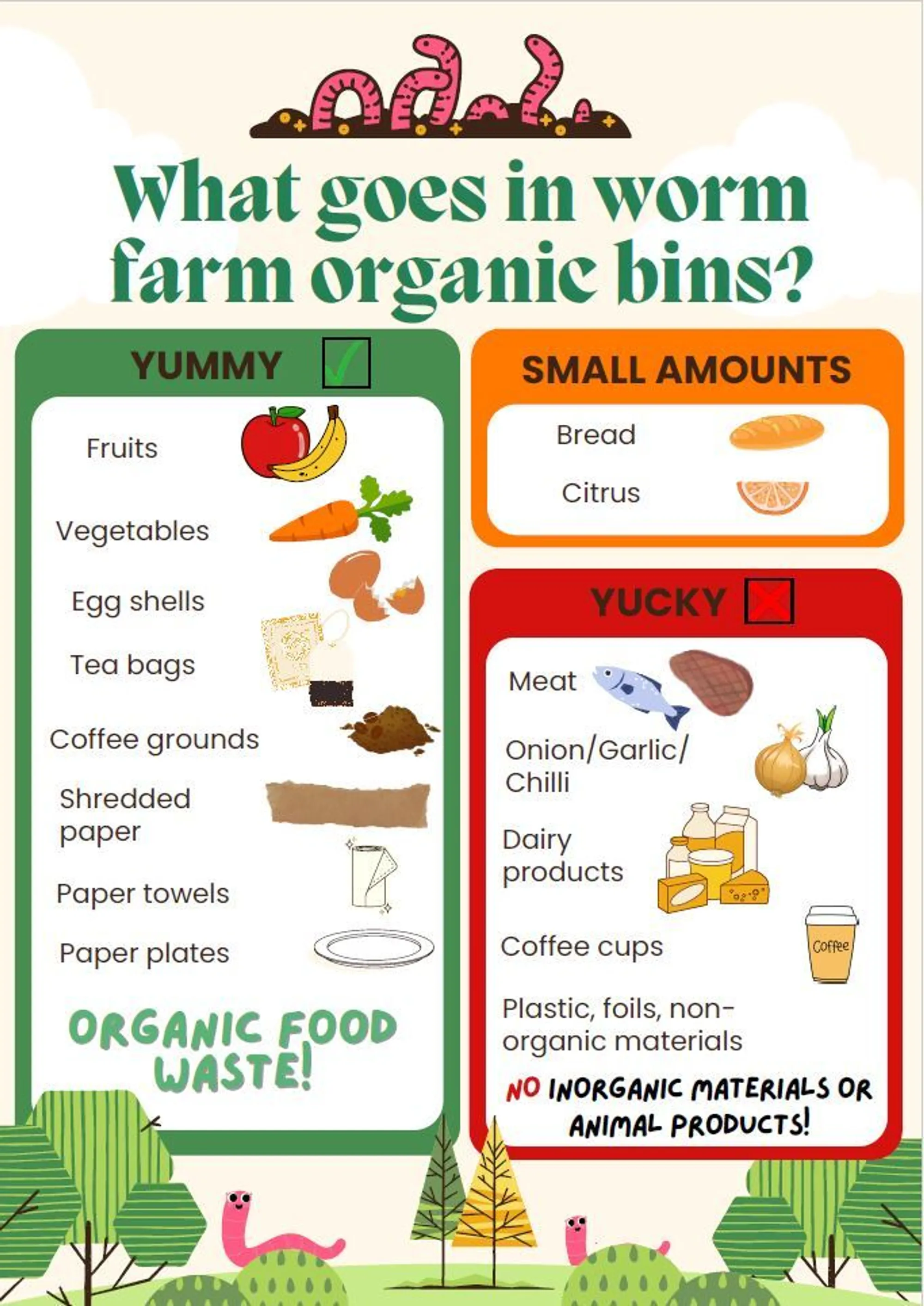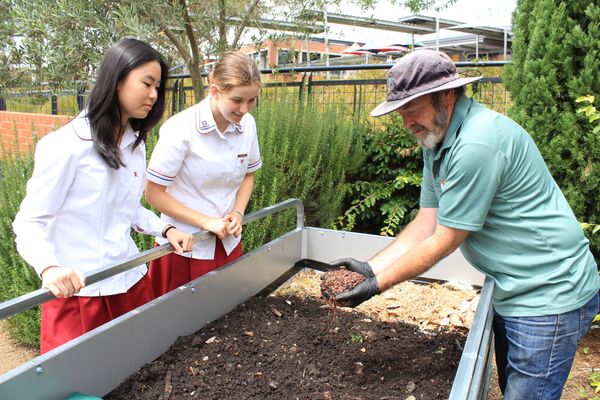Radford's silent workers
The Radford Worm Farm Family is growing exponentially - by about 160,000 members.
On the back of the hugely successful launch of the worm farm in the Junior School a year ago, and shortly after that the introduction of another backing onto the Gossan Hill Nature Reserve, a third was installed this past week.
The Sustainability Working Group and Global Worming have worked together to introduce this new worm farm at Radford for Secondary School staff and students. These worms - Indian Blues, Tiger Worms, and Red Wrigglers - will feed on food scraps, paper towels, wooden cutlery and other organic material that would otherwise have ended up in landfills.
The new worm farm is located in the Stromlo Precinct behind Food Technology, and just like the one in the Junior School, is 1.5 metres wide and 6 metres long. Cid Riley, CEO of Global Worming has this past week introduced the first 20kg of worms to their new home. These 80,000 worms will slowly increase in numbers until they reach a total weight of around 40kg.
Worm farms like these have gone a long way in reducing Radford College’s carbon footprint.
“Worm farms have so many benefits for our College: they can be used for educational purposes, they fit perfectly with our sustainability commitments but also save us money in waste collection” says Ms Agnes Kopras-Ianson, Director of Finance.
According to Mr Riley, when fully operational, the worms will turn between 120kg and 150kg of food waste per week into compost, which will be used in Radford’s gardens. This equates to more than six ton per year.
“Every ton of food waste diverted from the landfills equates to about 3.5 ton of methane gas not being produced,” says Mr Riley.
Cid Riley was an economist and data architect by trade but has always been a keen gardener and worm farmer. In 2006 he started Global Worming and for the past 13 years it has been his full-time occupation. He now proudly refers to himself as a vermi-economist, vermi from the Latin word for worm.
“We have to stop food rotting and causing greenhouse gasses, and this has to be the way of the future,” he adds.
Mr Riley and his team will be visiting the College twice a week to collect the contents of the green and purple lidded bins and to feed the worms.
We can all do our part by ensuring that only organic materials end up in these bins. Things to avoid are the round plastic stickers on fruit, squeezy bags for yogurt, single use plastic snack bags, cling wrap and baby wipes. Mr Riley also likes to point out that the purple bins are vegetarian, so no raw meat please.
A message from the 2024 Sustainability Captains
By Tiffany Chue & Pippa Humphries
It is with great pleasure that we embark on this journey to lead as Sustainability Captains of 2024! As members of the Sustainability Working Group, we are committed to contribute to the development and implementation of sustainability initiatives across Radford College. Each of us is responsible for the actions we take that affect the environment, so we encourage the Radford community to See, Listen, and Act as we continue to work towards a more sustainable school.
Term 1 began with the construction of a worm farm on the school grounds. Worms can turn your organic or food waste into rich fertiliser for the garden. Let’s help keep food waste out of landfill! Please keep an eye out for the labelled organic bins around the school. Cross-contamination can harm the worms, so let's take responsibility for the waste we produce and ensure the new bins remain containment-free!
Click here to read more about worm farms.

